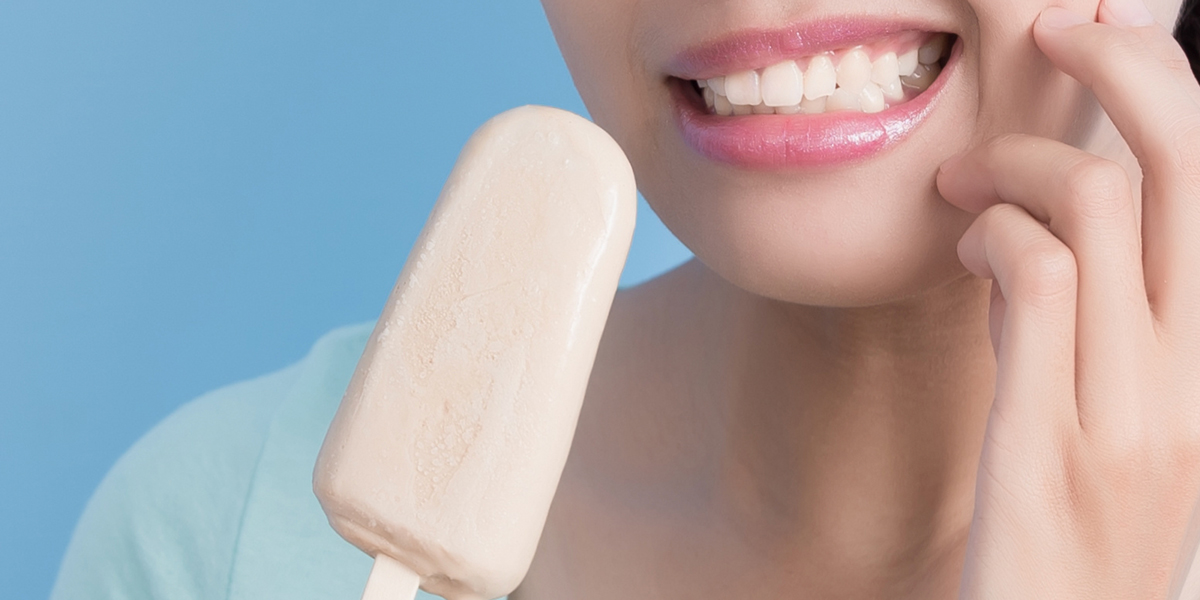Tooth sensitivity, a common dental issue that affects countless individuals, can turn the simple act of enjoying a hot cup of coffee or an ice cream cone into an unpleasant experience. At Thind Dental Clinic in Ludhiana, we understand the discomfort and inconvenience that tooth sensitivity can bring to your daily life. We’re here to provide you with insights into the causes of tooth sensitivity and effective treatments that can help you bid farewell to this dental woe.
Understanding Tooth Sensitivity: Peeling Back the Layers
The outermost layer of your teeth, known as enamel, shields the inner layers from external factors. Beneath the enamel lies a layer called dentin, which consists of microscopic tubules that connect to the nerve endings of the tooth. When the enamel wears down or the gums recede, these tubules become exposed, leading to tooth sensitivity.
The Causes Behind the Sensation
Several factors can contribute to tooth sensitivity:
1. Brushing Habits: Brushing your teeth is essential for oral hygiene, but using excessive force or a hard-bristle toothbrush can lead to unintended consequences. Aggressive brushing can wear away the protective enamel layer, leaving the underlying dentin exposed. Dentin contains microscopic tubules that connect to nerve endings, and when these tubules are exposed, it can result in heightened sensitivity.
2. Acidic Foods and Beverages: The modern diet often includes a variety of acidic foods and drinks, such as citrus fruits, sodas, and certain types of vinegar. Regular consumption of these acidic substances can gradually erode the enamel, leaving the dentin vulnerable. As the dentin becomes exposed, sensations of pain or discomfort can occur when eating or drinking hot, cold, sweet, or acidic items.
3. Gum Recession: Gum recession is a natural process that can expose the roots of the teeth. Unlike the enamel-covered crowns, tooth roots are not shielded by protective enamel. This makes them more susceptible to external stimuli, leading to sensitivity. Gum recession can be caused by factors like age, improper brushing technique, or gum disease.
4. Teeth Grinding (Bruxism): Grinding or clenching your teeth, a condition known as bruxism, often occurs involuntarily during sleep or due to stress. The repeated friction and pressure exerted on the teeth can wear down the enamel, gradually exposing the dentin. Individuals with bruxism may experience heightened tooth sensitivity as a result.
5. Tooth Decay or Fracture: Cavities and fractures in the teeth can compromise the enamel and expose the dentin. The presence of these openings can lead to sensations of sensitivity, especially when consuming hot, cold, or sweet foods and beverages.
6. Dental Procedures: While dental treatments are aimed at improving oral health, some procedures can temporarily increase tooth sensitivity. Teeth whitening, for example, can lead to heightened sensitivity as the whitening agents penetrate the enamel. This sensitivity typically goes away within a brief time.
Effective Treatments for Tooth Sensitivity
1. Desensitizing Toothpaste: Special toothpaste formulated for sensitive teeth contains compounds that block sensations of pain. Using this toothpaste regularly can help alleviate discomfort.
2. Fluoride Treatment: Professional fluoride treatments can strengthen enamel and reduce sensitivity. Fluoride aids in remineralization, making the teeth more resilient to temperature changes.
3. Change in Brushing Technique: Switching to a soft-bristle toothbrush and using gentle circular motions while brushing can prevent enamel erosion.
4. Dietary Adjustments: Limiting the intake of acidic foods and beverages can prevent further enamel erosion. Incorporating more enamel-strengthening foods can also help.
5. Gum Grafting: For cases of severe gum recession, gum grafting can cover the exposed tooth roots, reducing sensitivity.
6. Dental Sealants: Dental sealants can be applied to protect exposed dentin from external stimuli.
7. Custom Mouthguards: If teeth grinding is the cause of sensitivity, wearing a custom mouthguard at night can prevent further enamel wear.
8. Professional Desensitizing Treatments: At Thind Dental Clinic, we offer in-office treatments that involve applying desensitizing agents or protective coatings to provide relief from sensitivity.
Preventing Future Sensitivity
1. Gentle Oral Care: Embrace a gentle approach to oral hygiene. To brush your teeth, use fluoride toothpaste and a soft-bristled toothbrush. Brushing too vigorously can erode enamel and contribute to gum recession, both of which can lead to increased sensitivity.
2. Regular Dental Check-ups: Regular visits to Thind Dental Clinic in Ludhiana are an integral part of preventing tooth sensitivity. Our experienced dental professionals can detect early signs of sensitivity or other oral issues, allowing for timely intervention. Professional cleanings also help maintain optimal oral health.
3. Balanced Diet: A balanced diet plays a significant role in maintaining strong teeth and preventing sensitivity. Foods rich in essential nutrients, such as calcium, vitamin D, and phosphorus, help fortify enamel. Incorporate dairy products, leafy greens, lean proteins, and nuts into your diet for healthy teeth.
4. Limit Acidic Foods and Beverages: Acidic foods and drinks can weaken enamel over time, making teeth more susceptible to sensitivity. While it’s challenging to eliminate these items, reducing their consumption and rinsing your mouth with water after consuming them can help mitigate their impact.
5. Use Fluoride Products: Fluoride is known for its enamel-strengthening properties. Incorporate fluoride toothpaste and mouthwash into your oral care routine to help fortify enamel and reduce sensitivity.
Your Path to a Comfortable Smile
Tooth sensitivity doesn’t have to control your life. At Thind Dental Clinic in Ludhiana, we are dedicated to helping you find relief from tooth sensitivity. Our team of experienced professionals is committed to offering personalized solutions tailored to your needs. By addressing the root causes and implementing effective treatments, we aim to restore your ability to enjoy your favorite foods and drinks without the fear of discomfort. Let us guide you on your journey toward a healthier, more comfortable smile.

